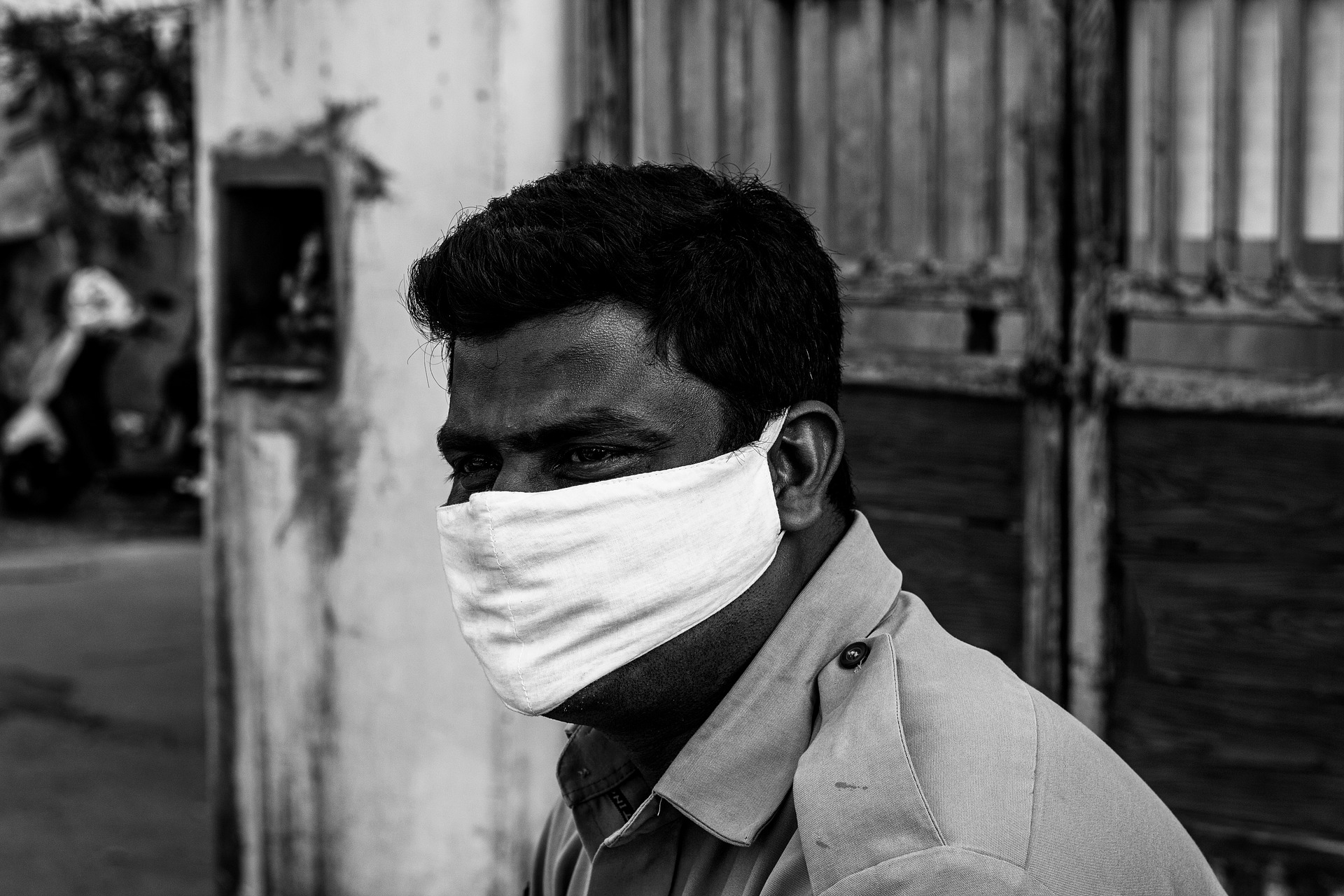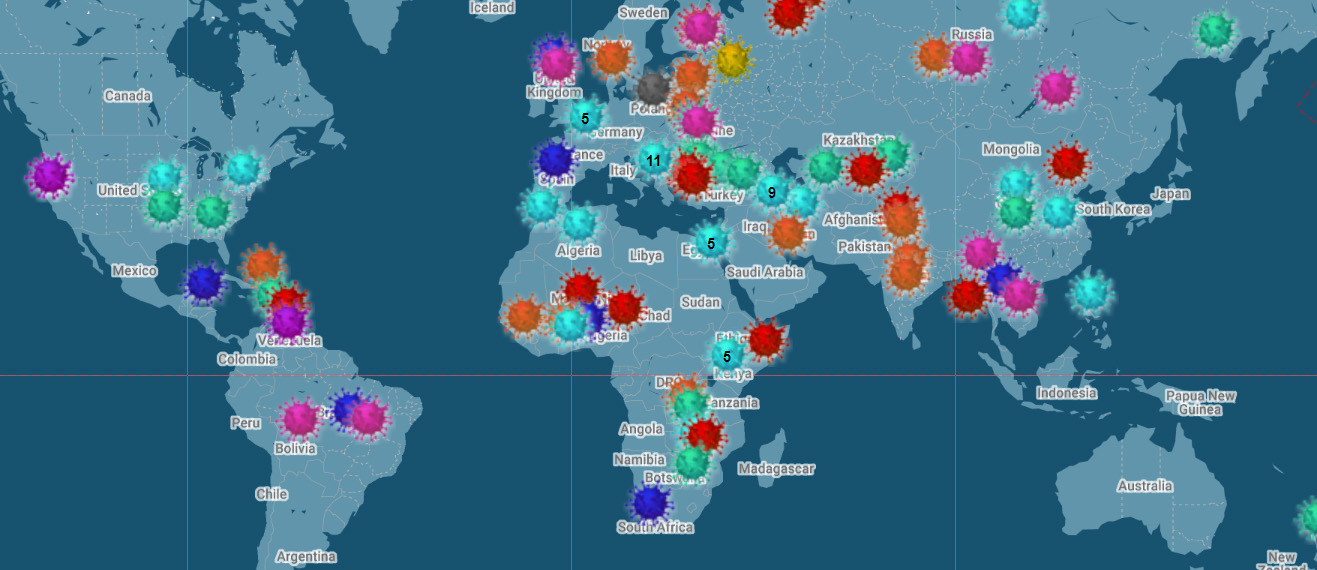“You cannot report on anything that is not confirmed by the government,” Indian journalists report

Image by Raam Gottimukkala from Pixabay
A friend in the police department apologetically texted me with some “friendly” advice. “Don’t be extra active on social media over corona issues which may lead to panic and rumours. There may be legal issues over it,” he said.
He wouldn’t elaborate further, but it didn’t take much to understand. A freelance journalist was arrested in Andaman and Nicobar Islands for a tweet on a bizarre quarantine rule. At least 13 people from various walks of life have been arrested since 1 April in Manipur for Facebook posts. A doctor at a government hospital had been harassed by the police and questioned for 16 hours at a police station after he put up a Facebook post complaining about the lack of protection gear for doctors. A founder of an online publication was arrested in Tamil Nadu for reports on problems faced by government healthcare workers. In Chhattisgarh, a journalist was slapped with a notice threatening arrest for his report on the plight of women in lockdown.
The pandemic has given the government free rein. India is witnessing very high levels of suppression of free speech and media censorship across the country.
“Everything is censored,” said a Kolkata-based journalist, declining to be identified. “You cannot report on anything that is not confirmed by the government. Getting data on anything is an ordeal.”
In the name of curtailing rumours and fake news, there have been curbs on free speech and freedom of journalists to cover the pandemic, especially those with questions that make the government uncomfortable. “It’s as if the media is an opponent. It is as if asking questions of the government is a crime, or a politically motivated exercise,” said the journalist.
On 30 March, Scroll.in published a list of ten questions that health beat reporters in Delhi had for the central government but did not get any answers. These included: How did the Indian government arrive at the pricing of the Covid test in private labs, which is Rs 4,500 ($60), and among the highest in the world? Why has the drug controller not released the list of Covid-19 testing kits that have been granted import and manufacturing licences? What are the steps the government is taking to map the scale of Covid-19 outbreak in the community? What arrangements have been made to ensure patients living with life-threatening conditions like cancer, tuberculosis and HIV that require continuous support are not deprived of critical care?
While questions such as these remain unanswered, journalists covering the Covid crisis say they are witnessing unprecedented levels of censorship. Government interaction with the press is stressed. Prime Minister Modi, in keeping with his record, has not organised a single press conference on the issue. Harsha Vardhan, a health minister, has interacted infrequently with the press, while the daily press briefings are conducted by a senior bureaucrat in the health department, Lav Agarwal.
“In the ministry’s organisation structure,” writes Vidya Krishnan in Caravan magazine, “Agarwal comes after two secretaries, four special secretaries and four additional secretaries, and is one of the thirteen joint secretaries in the ministry of health.”
Even the press briefings are not for all journalists. Barring Doordarshan (DD), India’s public broadcaster, and news agency Asian News International and a few accredited journalists, others have been barred from attending the press briefings in the name of social distancing. “The directive on social distancing became an excuse to not have journalists in the room,” said Anoo Bhuyan, Delhi-based health reporter with Indiaspend, a data journalism-based news portal.
“Then we got a message one day saying other than ANI and DD no one needs to attend the press conference. They said we could send our questions through WhatsApp. However, there is no guarantee that your question will be picked to be answered by Mr Agarwal. It is like a lucky draw without any rationale and definitely does not give equal chances to all journalists. In the very short time allotted for questions, only two to four questions are picked up, some of which are repetitions.”
The Modi-led government even approached India’s Supreme Court to legalise censorship by seeking an order that would prevent the media to publish anything “without ascertaining the true factual position” from the government. The court did not go that far, only directing the media to “refer to and publish the official version about developments”.
“The order itself does not have teeth, but the fact that there is an order may freak out many,” said Bhuyan. “It gets diabolical in that Lav Agarwal makes it a point to sometimes refer to the order and ‘remind’ journalists to ‘exercise caution’ and ‘report responsibly’.”
“What’s happening in India is extremely disturbing,” Vidya Krishnan, a Goa-based health reporter with Caravan magazine, tweeted on April 1. There is a media gag in place, doctors have been threatened to not speak out against lack of PPE kits, and the health ministry says we have no local transmission (without scaling up testing). Genuinely struggling to understand how we can continue reporting in this Orwellian setting.”

Source: Ministry of Health and Family Welfare, data correct as at 30/4/2020
Meanwhile, Mamata Banerjee, chief minister of the Indian state of West Bengal, announced insurance cover for journalists covering Covid from the frontlines. It is a combination of medical and life cover worth 10 hundred thousand Indian rupees (£10,500). There’s one rider: journalists have to do “positive” stories. “People are depressed seeing negative news all the time,” she said. “Journalists should be involved with the government,” she added without leaving anything to doubt.
This came just two days after she threatened legal action against journalists if they report “unconfirmed” fatality figures. Banerjee, who has a record of booking journalists, academics and the general public for social media posts critical of her, faces allegations that she is supressing Covid-related data in the state. The state has a special committee to “audit” and “ascertain” Covid deaths.
Banerjee has asked journalists to “behave properly” or face legal action.

